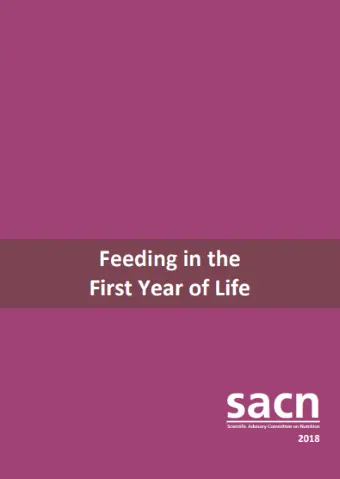The Scientific Advisory Committee on Nutrition (SACN) has published its report on ‘Feeding in the first year of life’, providing recommendations on infant feeding from birth up to 12 months of age.
Dr Cheryll Adams CBE, Executive Director iHV, said:
“We welcome the SACN ‘Feeding in the first year of life’ report and having timely access to the latest advice and recommendations on infant feeding, especially reinforcing the existing guidance on breastfeeding and the introduction of solids.
“I would like to advise all health visitors to read the report and its recommendations and ensure that they use it to inform all nutritional advice they give to parents.”
SACN recommends babies are exclusively breastfed until around 6 months of age and continue to be breastfed for at least the first year of life. Additionally, solid foods should not be introduced until around 6 months to benefit the child’s overall health. This represents no change to current government recommendations.
SACN recommends that a wide variety of solids foods, including iron-containing foods should be introduced in an age appropriate form from around 6 months of age.
SACN recommends that advice on complementary feeding should state that foods containing peanut and hen’s egg can be introduced from around 6 months of age and need not be differentiated from other solid foods. The deliberate exclusion of peanut or hen’s egg beyond 6 to 12 months of age may increase the risk of allergy to the same foods.
Other recommendations include:
- Breast milk, infant formula and water should be the only drinks offered between 6 and 12 months of age. Cows’ milk should not be given as a main drink, as this is associated with lower iron status.
- A wide range of solid foods, including foods containing iron, should be introduced from around six months of age, alongside breastfeeding. These foods should have different textures and flavours and may need to be tried several times before the infant accepts them, particularly as they get older.
Breastfed infants up to 12 months should receive a daily supplement containing 8.5 to 10µg of vitamin D (340-400 IU/d). Formula-fed infants do not need a supplement unless consuming less than 500ml of infant formula a day.



